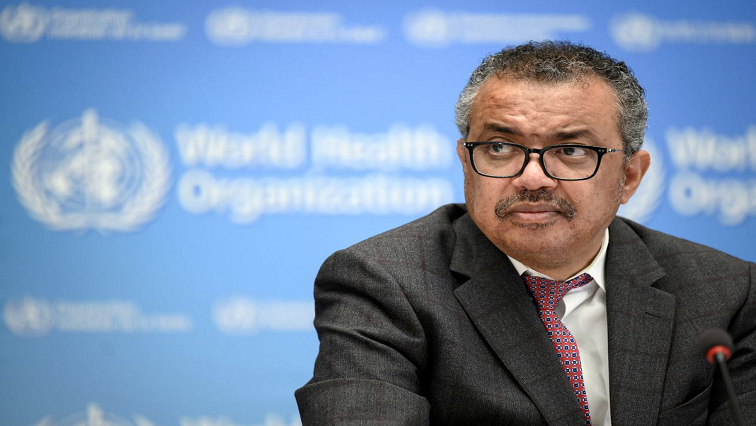World Health Organisation (WHO) Director-General, Tedros Ghebreyesus, has cautioned against discriminatory travel bans as the Omicron variant of the Coronavirus spreads to even more countries.
In a press briefing today, he urged countries to make use of the tools available in the fight against COVID-19.
Southern African countries have been slapped with travel bans by some European countries, and the US, following the recent discovery of the new variant by scientists in South Africa and Botswana.
He also warned that much is still unknown about this variant, believed to be highly transmissible because of its high number of mutations.
“All governments should reassess and revise their national plans based on the current situation and their national capacities. Accelerate vaccine coverage in the most at-risk populations in all countries, intensify efforts to drive transmission down, and keep it down, with a tailored mix of public health measures. Scale-up surveillance testing and sequencing and avoid ineffective and discriminatory travel bans. I’m also pleased that France and Switzerland, have lifted their travel bans on Southern African countries.”
In a press briefing earlier today, Ghebreyesus added that emerging data from South Africa suggests an increased risk of re-infection with omicron, but also said that there’s proof that omicron causes milder disease than its predecessor the delta variant.
Ghebreyesus has added that it’s too early to have definitive answers on the variant.
“The Omicron variant has now been reported in 57 countries, and we expect that number to continue growing. Certain features of Omicron, including its global spread and a large number of mutations, suggest it could have a major impact on the course of the pandemic. Exactly what that impact will be is still difficult to know. We are now starting to see a consistent picture of the rapid increase in transmission, although for now the exact rate of increase relative to other variants remains difficult to quantify.”
Media briefing on #COVID19 with @DrTedros https://t.co/FPZgnXcilc
— World Health Organization (WHO) (@WHO) December 8, 2021






